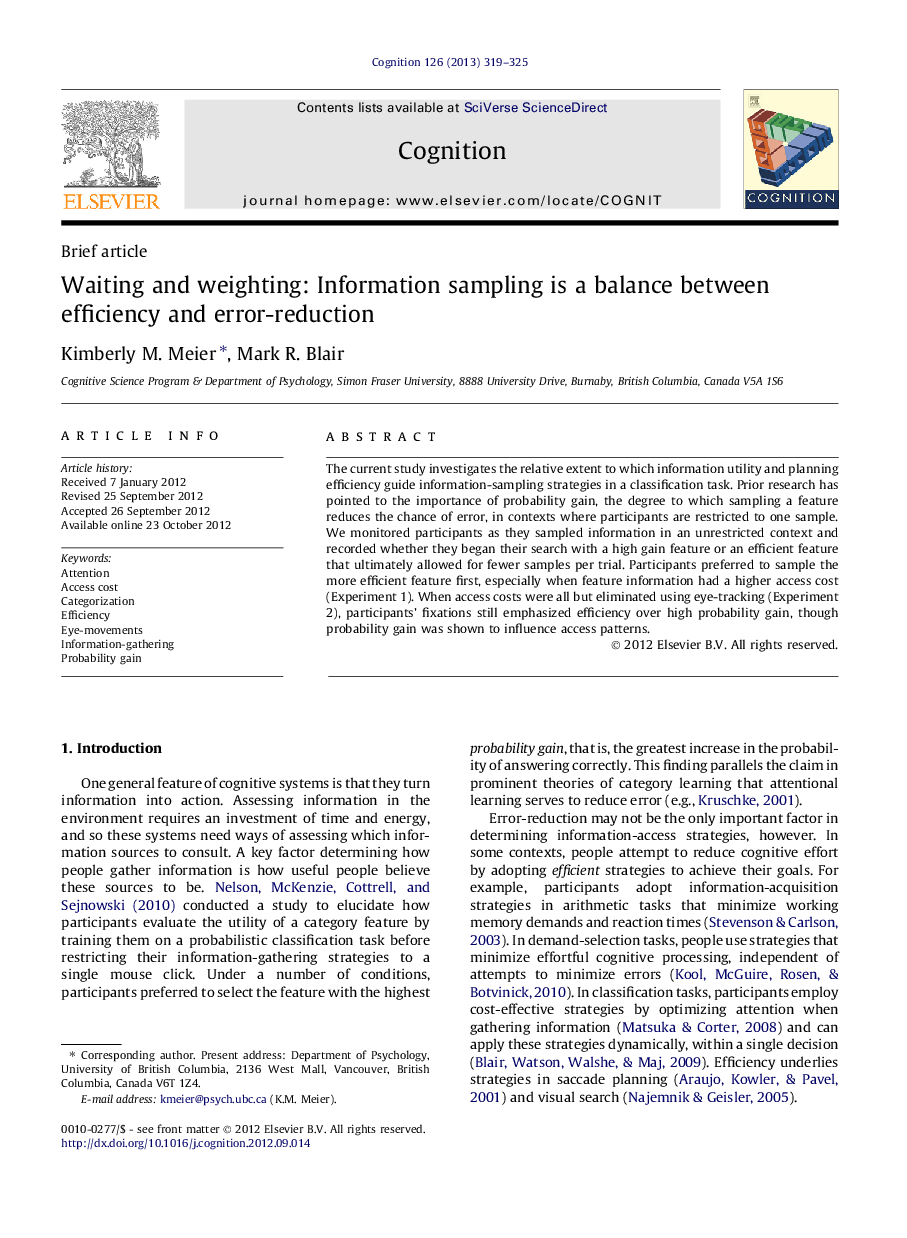| Article ID | Journal | Published Year | Pages | File Type |
|---|---|---|---|---|
| 926465 | Cognition | 2013 | 7 Pages |
The current study investigates the relative extent to which information utility and planning efficiency guide information-sampling strategies in a classification task. Prior research has pointed to the importance of probability gain, the degree to which sampling a feature reduces the chance of error, in contexts where participants are restricted to one sample. We monitored participants as they sampled information in an unrestricted context and recorded whether they began their search with a high gain feature or an efficient feature that ultimately allowed for fewer samples per trial. Participants preferred to sample the more efficient feature first, especially when feature information had a higher access cost (Experiment 1). When access costs were all but eliminated using eye-tracking (Experiment 2), participants’ fixations still emphasized efficiency over high probability gain, though probability gain was shown to influence access patterns.
